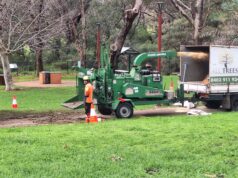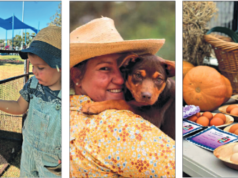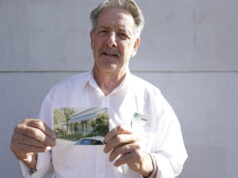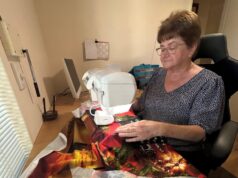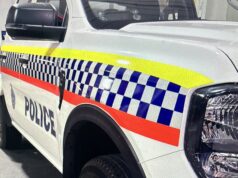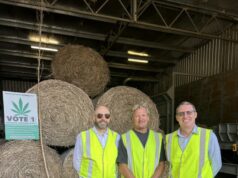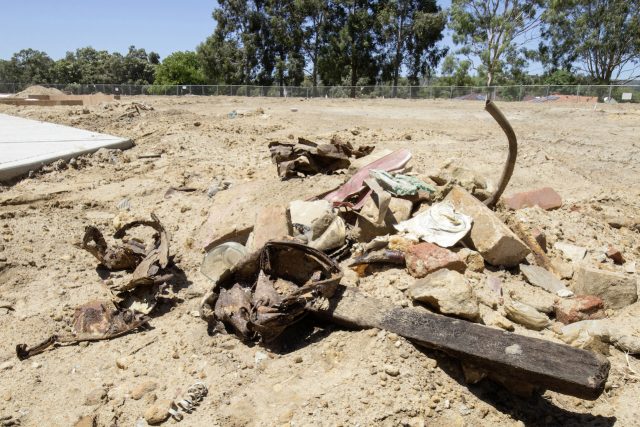
A contractor on the $300,000 dog exercise area development at Kelmscott’s John Dunn Memorial Park said he was surprised to find the soil contained hazardous materials including asbestos and syringes.
- Contractor Robert Webb said he found syringes, asbestos and other hazards at the future site of the John Dunn Memorial Park dog exercise area.
- The area was a rubbish tip until the 1970s, when it was converted into a public park.
- The City of Armadale said there was no reason to be concerned, but Mr Webb and an asbestos safety spokesperson disagreed.
Workers recently found asbestos, syringes, glass, and rusted metal among other hazards on the site, drawing concerns contractors, nearby residents and future park users had not been adequately protected.
Robert Webb has installed fences on the site and said he was surprised to hit asbestos as soon as he began digging, especially as he was told there was only a small amount of it in the area.
“I’m digging holes and I’m finding asbestos, tin, syringes – that’s what the whole site’s like,” he said.
“I’ve never come across stuff like this.
“Surely the city has a duty of care to remove the contaminated soil.”
He also voiced concerns about the lack of warning signs in the area.
John Dunn Memorial Park was previously a rubbish tip, which closed when the Armadale Landfill and Recycling facility opened on Hopkinson Road in the 1970s.
After the tip’s closure most of the land was converted into a playing field, but the rear portion of the reserve remained undeveloped.
A concept plan to turn the unused land into a dog park was released in November 2017 and featured grassed areas, agility items and sand pits.
The site is due to open in June, but Mr Webb said without clearing the soil first he feared the area could be dangerous to visitors and their pets.
“The city has a duty of care to make it a safe environment, not just to me as a worker but to people bringing their dogs down here in the future,” he said.
While the City of Armadale said work had previously been halted to remove a small amount of asbestos, Mr Webb said he was told the amount was substantial.
Asbestos Disease Society of Australia president Robert Vojakovic said there should not be any traces of asbestos on a worksite.
“If you don’t remove it all you then leave it to future generations to find this murderous material in the ground,” he said.
In response City of Armadale mayor Henry Zelones said contaminants like asbestos in the soil would be found in any Perth backyard built before the 1990s, and he believed the city had done what it needed to keep the area safe.
“The site contains various waste streams including plastics, glassware and general household waste,” he said.
“No syringes or medical waste of any sort has been identified.”
Mr Zelones said the city was not aware of any danger from the underground materials, and that asbestos had been removed following city protocol.




